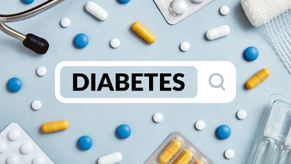Check-ups are diagnostic and imaging programs that should be performed at regular intervals to allow early detection, reducing complications and mortality from diseases. To extend lifespan and ensure that increased longevity consists of healthy years, check-ups should be done considering individual risk factors.
It is essential to first understand what silent diseases that progress quietly and may threaten life without clear symptoms might be, as by the time patients present with complaints, it could already be too late. The principle that early detection saves lives is a crucial experience gained through centuries of medical practice alongside preventive medicine.
Diseases such as hyperlipidemia (characterized by high cholesterol and triglyceride levels), hypertension, diabetes mellitus, cardiovascular diseases, and cancers are life-threatening and quality-of-life-reducing conditions that can be controlled through early diagnosis. But when should we have these health checks?
Let's look at the evidence-based recommendations from major health organizations such as the World Health Organization's International Agency for Research on Cancer, the American Cancer Society, the American Heart Association, the European Society of Cardiology, and Turkey’s own Public Health Agency, as well as relevant professional associations.
Cancer Screenings
There are limited screening tests available within check-up programs that allow for early diagnosis and reduction in cancer-related deaths. Screenings for breast and cervical cancer in women, and colorectal cancer in both men and women, are of vital importance. While some countries screen heavy smokers for lung cancer, this is not universally applied at the population level.
Breast cancer is the most common cancer in women worldwide and ranks first in cancer-related deaths. Mammography, as a screening method, can detect breast cancer 1.5 to 4 years before it becomes clinically evident. The World Health Organization recommends mammography every two years for women aged 50-59, and adhering to local screening guidelines for those aged 40-50 and 70-75. The Turkish Society of Medical Oncology recommends self-breast examinations, clinical breast exams by a doctor, and mammography every one to two years starting from age 40, depending on risk factors. In Turkey, the National Cancer Screening Program conducts annual clinical breast exams and biennial mammography for women aged 40-69.
Cervical cancer is most commonly caused by the Human Papillomavirus (HPV), which is preventable by vaccination. In Turkey’s National Cancer Screening Program, cervical cancer screening is done every five years with HPV-DNA and Pap smear tests for women aged 30-65. The American Cancer Society includes the 21-29 age group in its screening recommendations and suggests a three-year interval. Screening may cease in women over 65 if three consecutive smear tests in the last ten years were negative and the last test was performed within the last five years.
Colorectal cancer ranks high among both men and women and can be successfully managed and even cured when detected early. In cases where cancer develops from colon polyps, removing these polyps during a colonoscopy before they turn cancerous can prevent cancer formation.
In Turkey’s National Cancer Screening Program, colorectal cancer screening includes biennial fecal occult blood tests (FOBT) and decennial colonoscopies for men and women aged 50-70. Screening ceases for 70-year-olds who have had two negative tests. For those with a first-degree relative with colorectal cancer or adenomatous polyps, the same procedures are recommended starting at age 40. If the relative developed cancer at an early age, screening should start five years earlier than the age at which the relative was diagnosed.
The American Cancer Society recommends annual FOBT and decennial colonoscopy for individuals aged 45-75. For those aged 76-85, decisions should be individualized based on previous assessments, comorbidities, and life expectancy. No screening is recommended after age 85.
Check-Up Evaluations Beyond Cancer Screenings
Other check-up evaluations are aimed at early detection of conditions like hypertension, diabetes mellitus, hyperlipidemia, and obesity, which can lead to cardiovascular diseases, heart attacks, and strokes. It should be remembered that adopting healthy lifestyle habits, such as healthy eating, avoiding tobacco and alcohol use, and exercising, is the first line of prevention against these metabolic disorders, even before considering diagnostic tests and assessments.
The Turkish Society of Cardiology recommends annual blood pressure checks for those with a family history of hypertension, obesity, high salt intake, increased alcohol consumption, smoking, diabetes mellitus, or atherosclerotic cardiovascular disease, even if they have no symptoms.
In the management guidelines for reducing cardiovascular diseases, the European Society of Cardiology suggests including cholesterol and triglyceride measurements in screenings for men over 40 and women over 50 or post-menopausal. The Turkish Society of Endocrinology and Metabolism recommends screenings every five years starting at age 20. For men from 40 years, women from 50 years or post-menopausal, lipid profiles should be checked every 1-2 years, and annually after age 65.
The American Diabetes Association advises screening overweight individuals with at least one risk factor for diabetes (such as a first-degree relative with diabetes, hypertension, dyslipidemia, insulin resistance, sedentary lifestyle, or unhealthy eating habits). For others, screening should start at age 45. If results are normal, testing should be repeated every three years. The Turkish Society of Endocrinology and Metabolism recommends diabetes screening every three years starting at age 40, regardless of weight, due to a prevalence of over 10% in people over 40 in Turkey. For obese individuals or those with at least one risk factor for diabetes mellitus, more frequent (e.g., annually) and earlier screenings are advised.
Cardiovascular Diseases
Cardiovascular diseases, as a result of multiple shared risk factors, are the leading cause of death worldwide. Early assessment and control of potential risks from an early age should be included in primary health care services. The American College of Cardiology's 2019 guidelines for the prevention of cardiovascular diseases recommend risk assessments every 4-6 years for individuals aged 40-79. Based on risk assessment results, lifestyle modifications, dietary recommendations, and when necessary, medication for high blood pressure and dyslipidemia should be initiated.







